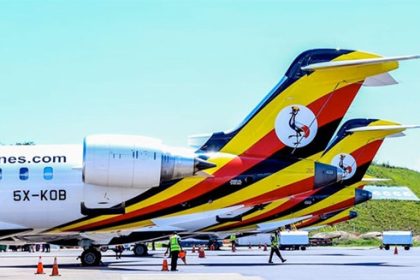African Airlines buck global trend with strong June air cargo growth — IATA

African airlines defied global headwinds in June 2025, posting a 3.9pc year-on-year increase in air cargo demand, well above the modest 0.8pc global average, according to the latest data released by the International Air Transport Association (IATA).
The figures, measured in Cargo Tonne Kilometers (CTKs), show that Africa continues to demonstrate resilience and growing relevance in the global freight network, despite persistent trade disruptions and capacity pressures.
Available Cargo Tonne Kilometers (ACTKs) for African carriers rose 6.2pc compared to June 2024, reflecting an ongoing recovery in network capacity. However, cargo load factors dipped slightly by 0.9 percentage points to 42.1pc, a sign that supply outpaced demand on some routes.
In contrast, other regions recorded either flat or negative performance. North America experienced the steepest contraction in demand at -8.3pc, while Europe managed a subdued 0.8pc growth and the Middle East saw a 3.2pc decline. Asia-Pacific was the standout performer globally, registering 9.0pc growth, boosted by strong intra-regional traffic and trade with Europe.
Globally, IATA Director General Willie Walsh said the overall 0.8pc demand growth masked divergent regional stories. “Trade tensions saw North American traffic fall and European growth stagnate. The standout gains in Africa and Asia-Pacific highlight how global trade routes are being redrawn,” Walsh noted.
Africa accounted for 2pc of global air cargo traffic in June, a relatively small share, but one that IATA says is growing in strategic importance as the continent builds infrastructure and opens new trade corridors.
Some of the continent’s gains come in spite of lagging performance on key trade lanes. For instance, traffic between Africa and Asia fell 4.8pc in June, marking the second consecutive month of decline on that corridor. Nonetheless, other Africa-linked lanes, particularly intra-African and Africa-Europe routes, remain robust and are likely to have contributed to the net demand growth.
The report also noted an improving global macroeconomic backdrop: world industrial production rose 3.2pc in May, while global goods trade grew 3.5pc—both indicators of supportive conditions for air freight. Meanwhile, June jet fuel prices were 12pc lower than a year earlier, though they ticked up by 8.6pc compared to May.
IATA says policy clarity remains critical to long-term momentum. “Emerging clarity on US tariffs is allowing businesses more confidence to plan,” said Walsh. “But significantly higher import tariffs also risk choking trade. Governments must prioritize trade facilitation by simplifying, digitizing, and reducing the cost of cross-border flows.”
For African carriers, the challenge now is to build on this performance. While cargo load factors remain below the global average of 45.5pc, the expansion in both demand and capacity signals positive momentum. Analysts say further gains could come from strengthened regional integration under the African Continental Free Trade Area (AfCFTA) and investments in airport cargo handling and logistics.


 Government reaffirms commitment to capitalise UDB as Bank deepens development finance role
Government reaffirms commitment to capitalise UDB as Bank deepens development finance role
 Uganda’s DEI Biopharma gene therapy breakthrough could transform sickle cell treatment
Uganda’s DEI Biopharma gene therapy breakthrough could transform sickle cell treatment
 Equity Bank Uganda set to close 2025 on firmer footing as clean-up phase gives way to growth
Equity Bank Uganda set to close 2025 on firmer footing as clean-up phase gives way to growth
 Stanbic targets wider access to affordable financing with ‘Oli In Charge’ campaign
Stanbic targets wider access to affordable financing with ‘Oli In Charge’ campaign
 USA–Canada certification dispute could expose Uganda and regional airlines to regulatory risk
USA–Canada certification dispute could expose Uganda and regional airlines to regulatory risk
 Sumsub launches AI Agent Verification as Africa grapples with surge in AI-driven fraud
Sumsub launches AI Agent Verification as Africa grapples with surge in AI-driven fraud